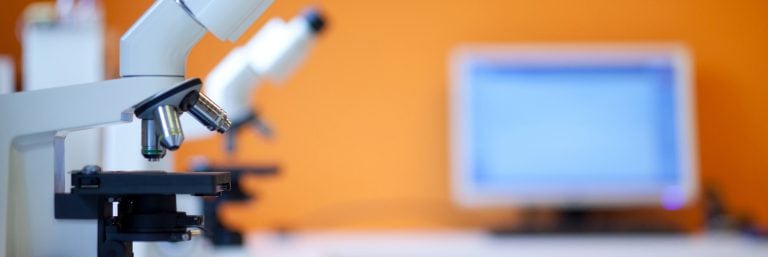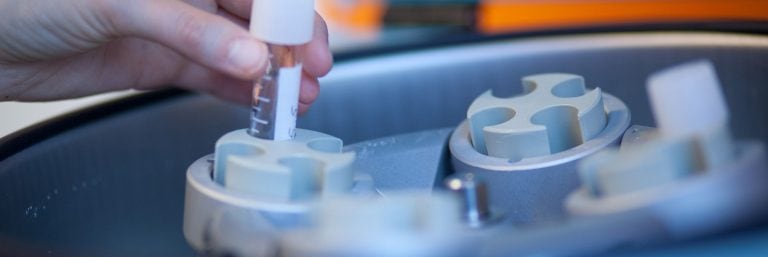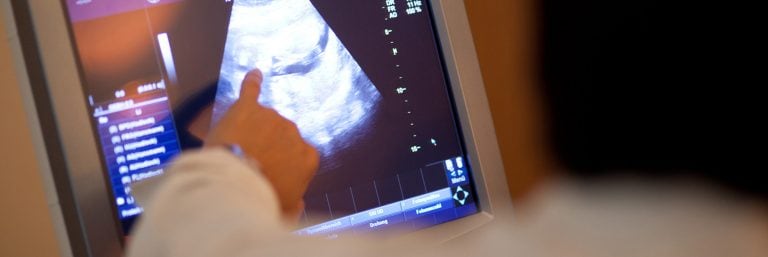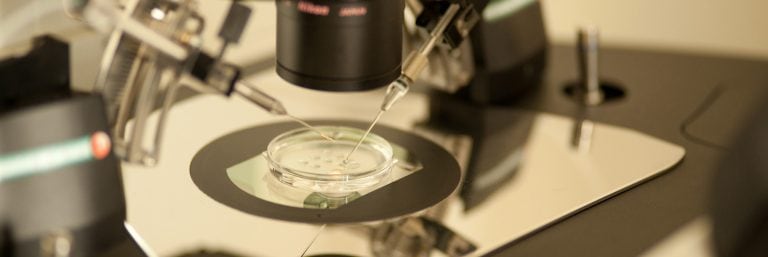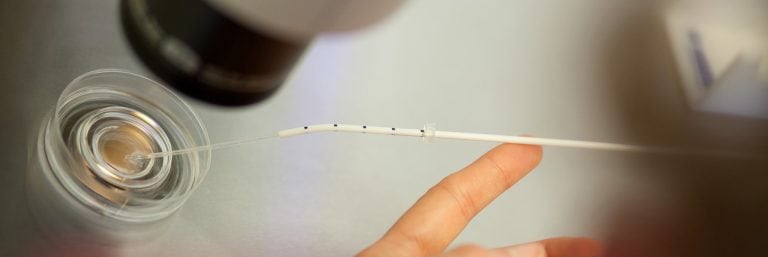Methods of Diagnosis
Methods of Diagnosis
Diagnostics begin as early as the first consultation. Information about the menstrual cycle, certain symptoms, information about previous illnesses, previous operations and experience with conception in previous relationships provide important impulses for the next diagnostic steps.
First Consultation
Infertility is a very personal problem. Requiring a high degree of trust in your doctor during the diagnosis and later during the therapy. The initial consultation should also serve to get to know us, so that you can decide whether you feel “well taken care of”.
During the initial consultation we already obtain a first impression of what the underlying problem is. The essential diagnostic steps can be discussed and the therapy that may result can be planned.
We do not want to “throw you off guard” with any diagnostics or therapy; you set the pace. “Blind actionism” as it can be found in some fertility centers is not the path, we want to take with you.
Should you already have medical reports from another doctor or a fertility centers, please bring them with you to avoid double examinations. However, if the findings presented are not sufficiently informative or no longer up to date, the corresponding examinations must be repeated.
However, if you have already found a fertility center elsewhere that suits you, but you would like a second opinion on the planned therapy, we are glad to offer it to you without any reservations.
Required documents
- GKV patients should present a referral from their gynecologist, general practitioner or urologist at their first visit (and quarterly).
- GKV patients who are only eligible for self-pay treatment should also present referral forms or their GKV card, since basic diagnostics can be billed as a service provided by the insurance company.
- Private patients should identify themselves by their PKV card or by an official document.
Medical Reports
Depending on the planned therapy, the following examination results are required. If the examinations have already been done, please bring the respective reports. Otherwise they examination can be done in our practice.
Women:
- A basic hormone examination between the 3rd and 6th day of the menstrual cycle.
It should contain:
E2, FSH, LH, TSH, PRL, T, SHBG (estradiol, follicle stimulating hormone, luteinizing hormone, thyroid stimulating hormone, prolactin, testosterone, sex hormone) - Rubella antibodies, varicella antibodies (chickenpox)
- If necessary, fallopian tube examination (HSSG or laparoscopy)
- in addition, prior to performing artificial insemination: HIV antibodies (AIDS test), antibody test for hepatitis B and C
- additionally before the donor sperm treatment: CMV antibodies (Cytomegalovirus), blood group
Men:
- Spermiogram (semen analysis)
- Sperm Fragmentation Index (SFI), if applicable
- in addition, prior to performing artificial insemination:
- HIV antibodies (AIDS test), antibody test for hepatitis B and C
- additionally before the donor sperm treatment
- blood group if necessary
- if necessary before any testicular biopsy:
T, FSH, genetics
